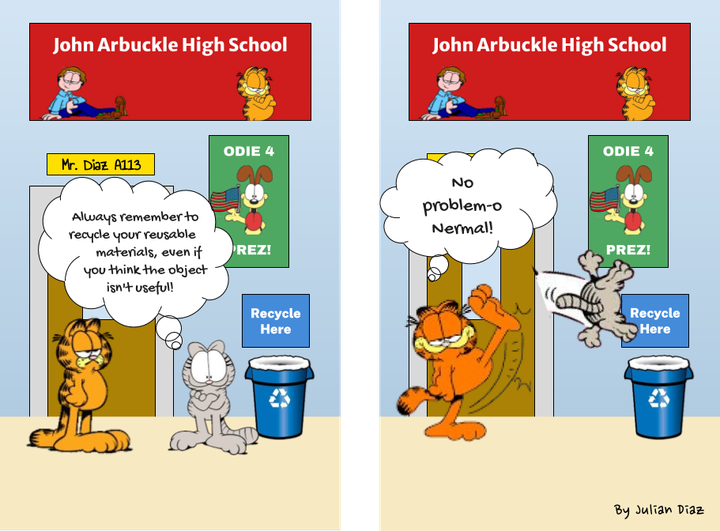How to Fix Accountable Talk
School discussions often feel awkward and forced — here's how to avoid that.

Opinion articles are pieces written by staff members of The Current. They serve to stimulate ideas and provoke discussion of topics and issues relevant to the MSMHS community. These articles provide a public forum for the personal opinions of the author and do not represent the voice of The Current overall.
One of the main points of academic interest here at Marine Science is accountable talk and, more broadly, the capacity to have a fruitful discussion. In fact, it's part of the rubric system, which means that dialogue between students is something our school should highly value. Despite this, however, I think the way in which we structure our discussions could use improvement.
Before we begin, I think it would be helpful to go over what the purpose of a dialogue is in the first place. First and foremost, the whole reason why we would even bother sitting around and listening to each other's opinions and insights is if we actually value what each of us has to say. I think this is a key principle here, as it generally implies a destruction of hierarchy. That is, a discussion where no individual is set up above any other. When there's a hierarchy, you aren’t really having a dialogue, but are rather listening to a lecture. Therefore, in a discussion, there is no ‘expert,’ nor an authoritative teacher. Instead, there is a democracy of voices. Due to this, a discussion must be structured to facilitate democracy and avoid any authoritative voices.
The goal of discussions is to open up new ways of thinking on a specific subject and diminish restrictive, dogmatic thinking.
This brings us to the second reason for having dialogues in our school: we are expected to learn something from it. In a discussion, ‘teacher’ is a collective title, one that implies a more dynamic participation between students. Here, learning centers more on exposure to a diversity of opinions and insights. The goal of discussions is to open up new ways of thinking on a specific subject and diminish restrictive, dogmatic thinking. In other words, part of what you learn from a discussion is how to think and respond to other views and not simply mindlessly consume information. Dialogue doesn’t need to have a particular end goal in mind; the purpose is the journey, not the destination.
Covering that, I think it is now a good time to go over how to make that journey a fruitful one. Here are some tips that could be useful in having a good discussion:
Encourage everyone to participate
One of the most important things for having a dialogue is for people to participate in them. However, this can easily be done the wrong way. One of the worst discussion strategies I’ve seen at our school is grading someone on the number of times they speak. I understand, practically, why this is done. However, it really does damage to a discussion, because the whole conversation focuses on people trying to speak, earn the grade, and be done. What I’ve noticed, ironically, is that limiting the amount of talking is a better means of facilitating true discussion. This prevents any set of individuals from dominating the conversation and allows other people to join in.
Have everyone on the same page
Everyone should have the same information base. This means that the discussion should always have its foundation in something everyone has available. Whether this is a book, an article, or something else doesn’t matter; just the fact that it’s shared information that everyone is using makes it easier to create shared knowledge.

Without this, a member of the discussion can pull out a bit of knowledge that no one else has, making them the expert on this particular topic. This turns the discussion into a lecture, destroying the whole point of having a conversation in the first place.
Silence is not the enemy
Whenever there is a period of silence, I feel that there is a tension to fill that void as quickly as possible. However, this doesn’t have to be so — silence could just mean that everyone is thinking. Silence can be useful to reorient ourselves in a discussion and perhaps start on a new train of thought.
Above all, the most important part of making a discussion work is making sure that everyone understands the subject and mission of the dialogue. It’s important to value our discussions, as they’re an opportunity for us to engage in a more active form of learning that isn’t simply crunching information. Dialogue is ultimately about bringing us above the treetops of opinions to see with new eyes what's really out there.





